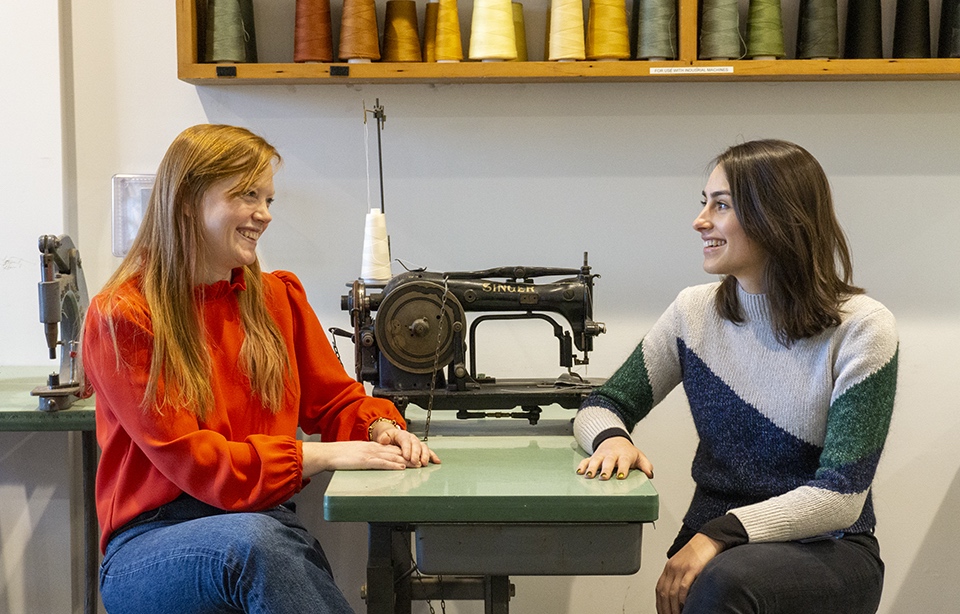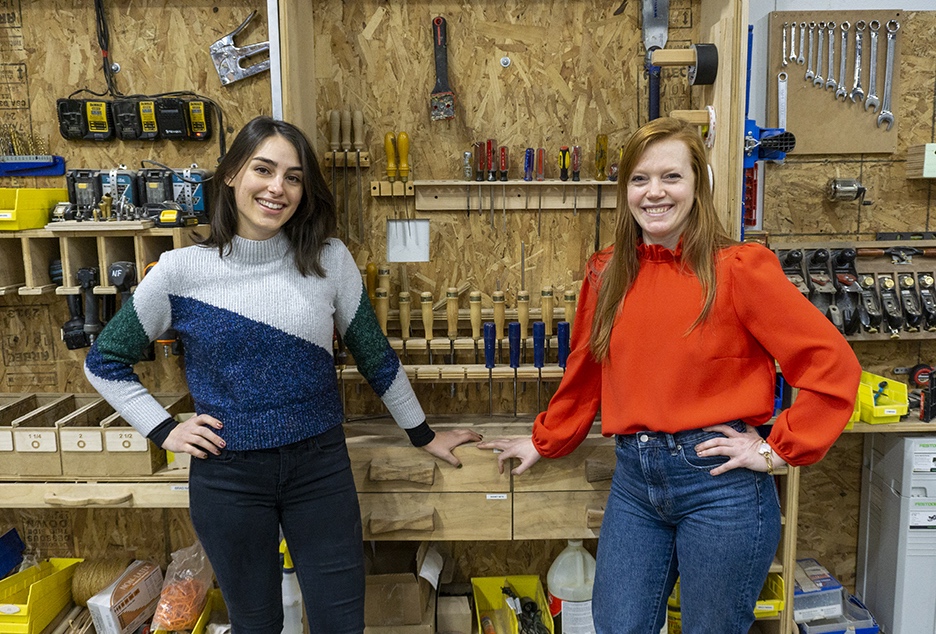To complete a degree in studio art, you are expected to understand the fundamentals of art history, how to prepare a surface for creating, and how to select the correct tools for your piece. As you develop your practice and hone in on a medium, you begin to create a body of work focusing on your inspirations and background. Rebecca Ledbetter discovered painting in college, where she learned how to mix colors and stretch a canvas, survived grueling critiques, and began to understand how to build an artistic discipline upon graduation. Students were taught how to be successful creatively, but not necessarily profitable.
In contrast, when graduating from business school, Anna Solomon carried the fundamental idea that passion must intersect with need. Entrepreneurship follows a specific set of formulaic procedures that develop your idea into a hypothesis, define your solution, in order to create a set of qualitative and quantitative data that proves it’s worthwhile. More often than not, what you predict doesn’t happen, but now you have a way to assess your obstacles and plan your next move. Students were taught how to get a return on investments, but not necessarily how to stick by their creative vision.
We — Rebecca and Anna — are the marketing and sales team at NextFab, a membership-based makerspace where these two worlds are fused together, with locations in Philadelphia and Wilmington. NextFab was founded on the belief that access to the right tools can bring an idea to life. As we’ve interacted with thousands of makers over the past 13 years, we’ve realized that entrepreneurs and artists are cut from the same cloth. Both want to use tools to express an idea inside of them, and both want to communicate it to the world. Through the NextFab community, we’ve gotten to observe the benefit of these groups working together in a shared creative space. Borrowing from both mindsets, these are the tools we wish we had when starting a sustainable creative practice.

NextFab’s Rebecca Ledbetter (L) and Anna Solomon. (Courtesy photo)
Tools in business
As an artist producing goods for sale to the public, you are a business. A business plan can be a powerful tool when you face hardships. It shows you what pieces (like marketing, staffing, and product offerings) can be manipulated to boost your sales or receive funding. Your time and energy are valuable and limited, and a business mindset can help you protect them.
Tools for creatives
It’s easy to get lost in the creative process — but scalability, fine-tuning your production, and finishing for sellability, are just as important as the piece itself. These tools can help you stand out, become more productive, and strengthen your product. When it comes to thinking about tools for creatives, don’t desert the pieces that bring you happiness, but balance them with a refined process.
Tools for contemporaries
One of the most essential tools in your toolkit is your peer network — a conversation with a contemporary (a person or thing living or existing at the same time as another) can reach further than you ever could by yourself. Your network can be better than a Google search; their solutions are supported by their lived experiences, unique skill sets, and diverse perspectives.
Taking our own advice, NextFab, along with artisan nonprofit, CraftNOW, is launching a hybrid conference, Tools of the Trades, focused on connecting artisans to business resources in Philadelphia and beyond. From March 23 to 25, attendees will have access to experts, resources, and peers from the craft community.
Return on investment is very important. We are taught to balance knowledge and risk, gather as much understanding of total costs as possible, to try and predict how to develop a favorable outcome. You still need to jump, but you try to see where you will land as much as you can.
Register for Tools of the TradeJoin our growing Slack community
Join 5,000 tech professionals and entrepreneurs in our community Slack today!
Donate to the Journalism Fund
Your support powers our independent journalism. Unlike most business-media outlets, we don’t have a paywall. Instead, we count on your personal and organizational contributions.

Maryland firms score $5M to manufacture everything from soup to nanofiber

National AI safety group and CHIPS for America at risk with latest Trump administration firings

Immigration-focused AI chatbot wins $2,500 from Temple University to go from idea to action


